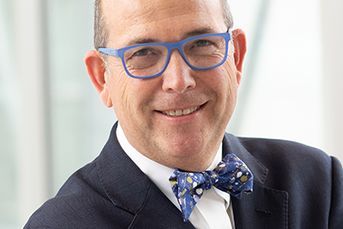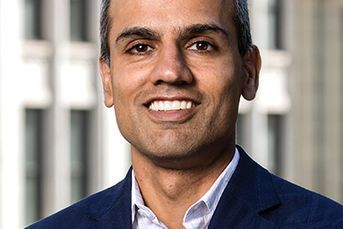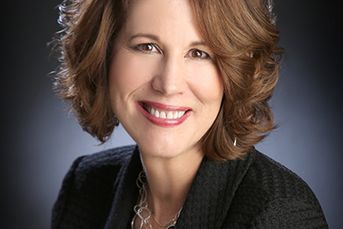Parents are upbeat about meeting college costs, but advisers skeptical
Although Americans' overall financial security and confidence in their ability to pay for their kids' college tuition has increased slightly over the past six months, financial advisers are observing mostly negative attitudes — with a few surprises
Although Americans’ overall financial security and confidence in their ability to pay for their kids’ college tuition has increased slightly over the past six months, financial advisers are observing mostly negative attitudes — with a few surprises.
Last month, the Country Financial Security Index, a composite measurement of Americans’ sentiments about their overall financial security, was 64.4, the first uptick since April, when it stood at 63.7. The survey was conducted by Rasmussen Reports LLC for Country Financial.
The incidence of respondents who said that they were very or somewhat confident about having enough financial resources for college jumped nationally to 61%, from 54%, since the last survey in August — contributing largely to the index’s increase. Local data were provided for Chicago, Denver, Minneapolis/St. Paul, Phoenix and St. Louis.
The rise in positive “college cost sentiment … has more to do with the limited subset of Americans involved and the time of year than anything else,” said Scott Bombeck, a certified financial planner who is president of Acanthus Associates in Holmes, Pa. “First, only those Americans that have kids and remotely expect them to go to college are concerned about paying for it. Secondly, the concern will naturally be highest with those parents of students approaching college age,” Mr. Bombeck said.
“Lastly, the September/October time frame is when parents … [are] making some concrete plans to pay for college costs. This planning provides some level of relief, even if it is only from getting a clearer picture of how much aid might be available,” Mr. Bombeck said.
“Most of our clients are fairly confident about being able to send their children to their college of choice,” said Jim Larson, a Minneapolis-based registered investment adviser with Northeast Securities Inc.
“However, almost all assume some level of grants or financial aid will be involved. Prior to 2008, there was more confidence in saving all the money necessary for college,” said Mr. Larson, whose practice manages $75 million in assets.
Between August and October, Minneapolis-area respondents to the Country Financial survey who work with financial planners showed an 11% decline in their confidence in having the resources to pay for college. The drop during the same period for a similar cohort in Chicago was even more precipitous: more than 24%.
PHOENIX CLIENTS UPBEAT
Surprisingly, confidence about meeting college costs among financial planning clients in the housing-crisis-battered Phoenix area grew by 24% between August and October. But Phoenix-area respondents who don’t work with planners reported plummeting confidence, with a drop of almost 19%.
“I’m seeing more and more people helping their adult children and grandchildren,” said CFP David Fernandez, owner of Wealth Engineering LLC, a fee-only practice in Scottsdale, Ariz., that oversees $60 million in assets.
“Our real estate market is the second-worst in the U.S.,” Mr. Fernandez said. “Real estate was such a huge boom — people took full advantage of all that equity. They’re getting hit from real estate issues on all sides.”
Nationally, the incidence of respondents who rated their overall financial security as excellent or good — a question separate from the composite index — dropped to 36%, from 39%, between August and October, and the incidence among those working with planners dropped to 50.6%, from 55%. For this group, results from the five metropolitan areas showed a wide divergence.
Sentiments in the Twin Cities region plunged the most — 13.2% — and the Denver area wasn’t far behind at 11.4%.
“People are very worried,” said Herb White, a CFP and managing director of Life Certain Wealth Strategies LLC, a Greenwood Village, Colo., firm that manages $42 million.
‘PESSIMISM AND FEAR’
“There have been some major layoffs in [the Denver] area. Recently, I’ve had clients laid off after more than 30 years on the job,” Mr. White said.
“We’re seeing pessimism and fear, especially about the possibility of having a comfortable retirement,” he said. “We are not seeing a return of confidence.”
In the Chicago area, sentiment dropped by 7.4%.
“As the market goes up and down, sentiment is going to be a reflection of that. I hear a little bit of optimism … But although clients have a tendency to look at the short term, they’re still concerned about their long-term ability to meet their goals,” said Scott Thole, a CFP with Morgan Stanley in Chicago.
Although planning clients in the St. Louis area showed a 5.8% uptick in confidence, Michael Tinkler, a certified public accountant and CFP with Cambridge Capital Management LLC, doesn’t see it.
“I don’t see anybody feeling more confident. Most people are frightened of the current market, even my professional clients, such as physicians,” said Mr. Tinkler, whose firm is the RIA for the Diel & Forguson Financial Group in O’Fallon, Ill., just outside St. Louis.
“If [clients] are old enough, they’re thinking, “I’m not retiring,’” he said.
Learn more about reprints and licensing for this article.








